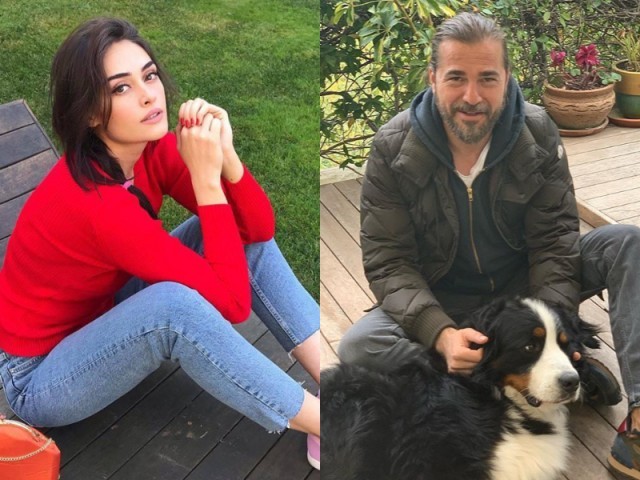
KARACHI:
Diriliş: Ertuğrul, a hugely popular Turkish television series has made its way to Pakistani screens at the behest of Prime Minister Imran Khan. The PM urged Pakistanis to watch the series. He, in fact, insisted that all five seasons be dubbed in Urdu so the general public can understand.
Often christened as the Turkish Game of Thrones, the wildly popular series is based in 12th century around the Muslim Oghuz Turks, Byzantines, Mongols and the Knights Templar Crusaders of Anatolia (present-day Turkey). Peddled as essential Islamic cultural history to unwitting Pakistanis, the series has been met with great success.
Running on national TV for little over two weeks now, Ertuğrul has, of course, gathered a strong fan base, but as it turns out, it’s not all rainbows.
As pointed out by a social media user over the weekend, one look at the Ertuğrul cast’s Instagram accounts comments section is set to make you cringe. The actors were met with unnecessary questioning on their social media accounts over not just anything, but their personal way of life — Pakistanis visited their profiles in battalions and left keen observations about their clothes, modesty, and even choice of pets.
To be fair, at this point, it’s not even about religious values. It’s about how distorted the personal values of an average Pakistani have become. Not just that, but how toxic our collective social culture has become over time.
From incessant trolling, hyperbolic moral policing, and border-line online lynching, our social media fabric has become so frayed that it hasn’t even spared people who don’t belong to our part of the world.
How much of it has to do with our ingrained entitlement? The simple answer would be, a lot. The comments themselves reek of a displaced sense of entitlement, wherein Pakistanis are asking predominantly Western Turkish actors to dress in an ‘Islamic’ way that is acceptable to them. The mere fact that the masses watching the series expect that Turkey, somehow, still has the same cultural nuances as it did, say, in the 12th century, seems absurd but not unbelievable.
As much as that confidence, entitlement and drive to morally police is both problematic and vile, there’s a sense of innocence involved that can’t be ignored. Perhaps it’s a mix of our larger lack of exposure and literacy. Not to mention, the fact that for a whole generation of Pakistanis, it is their first time watching Muslim characters that look as good as or even better than any Western film star and do extraordinary things, in Urdu.



0 Comments